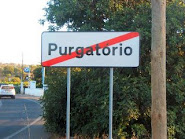
In a week dedicated to the theme; Christian Mission in a Secularised Society, we heard four papers which introduced us to four areas of concern and themes for discussion.
Christian Mission in a Secularised Age
The opening paper, Christian Mission in a Post Modern Culture, presented by Italo Benedetti, challenged us to consider the changing world in which we live and painted a picture of the current church. It pointed to the crisis of the church in attempting to respond to its rapidly changing context, as the world around it moves from a modern to a post-modern paradigm. The issues of this bumpy transition that most affect the church were around how people deal with knowledge and structure. From doctrine, through catechism onto church membership there is an articulation of rationality that no longer holds. Narratives have usurped propositions and diversity and experience have sidelined logic. He outlined the characteristics of the emerging church, less concerned with structure and more with spiritual formation, in which the questions have changed; from: how can I help my church grow? To; how can I contribute to the Kingdom's growth?. Italo concluded that a certain type of church and Christian expression was in demise: the fact that it is our expression rendered the question urgent. The church, he claimed, must accept transforming change and go through a transition that will at times be painful. Leaders may have to settle for the role or Isaiah and Jeremiah at the time of the exile; that of allowing the change to happen through small experiments.
In his response Laurie Barber affirmed that there is a hunger for God in people's hearts; that the crisis is not about Christianity, but Christendom. He also noted usefully that the cultural changes that the paper outlined where given poignancy by the experience of cross and multi cultural mission of many churches in the world today. Migration is changing the church. Laurie appreciated aspects of the new paradigm that led us back to understanding that the church is not the point, but the means to the end of God's mission. This mission will move us. We do not make it happen, but participate with God prayerfully, as conduits of the Spirit's work.
The wide-ranging discussion followed many threads. There was broad consensus that we are well into changeful times and that the paper had offered a helpful description of both older and emerging paradigms and something of the tensions and aspirations involved in the transition. This paradigm shift was in the main considered an opportunity, rather than simply a threat, though there was some questioning about whether history could be chartered in such a linear fashion. There was general agreement that the church needs to turn from being focused on its own processes and programs and move out into the wider communities and the wider world with a holistic gospel message, meeting people where they are.
Mission in a Spiritual Age
In her presentation Dr Joyce Bellous stated that all people are spiritual and asserted that churches could be more effective in both congregational health and mission if they were attentive to people's varying spiritual “styles”. A great deal of church conflict could thereby be alleviated. The four spiritual styles are identified as: word centered, emotion centered, symbol centered and action centered.
Church education can help churches towards literacy in these various languages of expression. Joyce has developed a Spiritual Styles Assessment tool for both adults and children to help them better understand themselves. Balancing all the styles helps to develop holistic environments that value and include everyone and so enrich the work of mission.
Sandro Spanu in his response made parallels between the paper and Romans 12: 3-5 underlining the image of the church as a body. He stated that “a church that evaluates different spiritualities operates already as a church in mission”. A church is called to practice communion with God and to build community while managing the differences expressed in the group.
A number of different discussion threads emerged. For instance, who decides which styles predominate, the pastor, the assembly? If the pastor is decisive what happens when she or he changes? The ideal was expressed as the “self-reflective pastor in happy standing with the church”. Do denominations reflect one predominate spiritual style or should services attempt to offer meaningful expression for all spiritual styles or languages? The answer to this question is important as the spirituals styles that find expression in a church will influence a church's engagement with the world around it. This tool was considered very useful for dealing with differences and conflict in the church. Conflict could be due to difference of spiritual language and alleviated by churches becoming more literate in the styles that Joyce has outlined. Such literacy could help in the church's mission as it could help translate people's less articulate search for spirituality and include people whose “style” was not the dominant one. There were some questions about how meaningful it was to say all people were spiritual, but the model did stress the often forgotten need to listen to people and hear what is their notion of God, before introducing these “idiosyncratic” notions to our experience of God as met in the scriptures.
Ethics: a Quest for Life.
Ethical questions continue to emerge as we are called to interpret life in a world that is constantly changing. Dr. Douglas Summers described a range of life and death issues that come into focus as medical and scientific advances offer new possibilities and dilemmas and as relationships and sensuality are redefined. In his paper Douglas noted the challenge facing the church of holding certain principals whilst being compassionate. He stated that in most of these questions we are relating to people in pain and therefore compassion is the priority.
In his response Martin Ibarra affirmed the approach of focusing on the pain and needs of real people rather than on judgments and universal prescriptions. As human persons we are defined and formed by the network of relationships in which we life and therefore life or the ethical questions surrounding life cannot be reduced to easy definitions. As churches we should be aware of the pain we have caused many people due to heavy judgments and easy answers given to difficult questions and should put these into tension with the open mercy of God. Life is a gift from God and we are charged with the responsibility to keep it human as we look for ways to live well.
Much of the discussion centered on the question of the sources of authority for ethical decision making; the relationship between scripture, science and living documents – the biographies of people we encounter and our own struggles. We also noted the missional aspect of ethics; as both witness to the gospel and engagement with people who often needed help in the circumstances of their lives. We discussed whether ethics was primarily an internal discussion for the church, focusing on formation of believers or whether it was a public exercise of offering answers or at least opinion in public debate. In this context we discussed whether scripture should be more usefully considered a resource for missional communities rather than a source of authority for our ethics.
The Gospel for the New Generation
Massimo Aprile defined youth as the “age in between” childhood and adulthood. He highlighted the impact of technological shifts and changing family patterns on young people, noting that their life's journey was more complex than that of previous generations. He noted that youth is characterized by cultural relativism, nihilism, and a search for identity in a pluralist context in which the self in experienced as fragmented, rather than a unified centre. Massimo proposed a response based on relationships rather than church programs. He also suggested that the biblical notions of promise and faith were useful in the quest for identity as resources since they leave space for uncertainty and at the same time call for commitment. He also brought to bear the tension of fullness and self-emptying expressed in our thinking on Christ in the cross and resurrection on the experience of nihilism in modern culture.
In his response Dr. Randy Wood affirmed the paper's description of the circumstances in which young people find themselves today. He added that churches had a role to play in their educational work of preparing children to be able to navigate the often difficult terrain of adolescence. Through tutoring on a range of practical and social skills the church could exercise a positive role in children's lives. He said that like Scrooge, in Dickens's Christmas Carol, we had seen a glimpse of the future and had the opportunity to change things for the wellbeing of the children amongst whom we live and minister.
In our discussions we noted that the description offered by Massimo described the life experience of diverse generations today. We reflected on the process that we undergo from belief – unbelief – committed belief, and the feeling that many people easily get grounded at the point of unbelief. The example of organizations, such as Greenpeace, with a strong hierarchy and clear directions shows how these things appeal to young people who often feel the lack of coordinates in their lives. We reflected on the need to share authentic stories, including those of loss and recovery. There was general agreement of the importance of hope and relationships in our ministry to young people.







.jpg)
